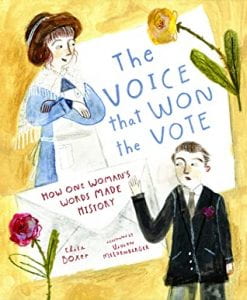 Exploring Social Injustice. Bright Point Press, 2023. $43.93 ea. $175.72 set of 4. 64 p. Grades 5-8.
Exploring Social Injustice. Bright Point Press, 2023. $43.93 ea. $175.72 set of 4. 64 p. Grades 5-8.
Boone, Mary. Racial Injustice. 978-1-678-20400-6.
—. Immigrant and Refugee Injustice. 978-1-678-20396-6.
Gagne, Tammy. Injustices Against Women. 978-1-678-20398-6.
Terp, Gail. Climate and Environmental Injustices. 978-1-678-20394-6.
Each book in this compact series is set up with a list of fast facts, an introduction with a topic overview, and four chapters offering a brief history of the injustice, the modern problem, aspects of activism, and possible solutions. The slim volumes feature large print, textboxes, and color photographs with captions. Despite the lack of in-depth description, the authors attempt to include a clear, concise explanation of each injustice accurately and currently. Textboxes highlight important persons involved in the movements. Each page contains significant information about the causes, progressions, and effects of these societal wrongs. The information is suitable for older, struggling readers or middle school students. Includes source notes, glossary, and index.
THOUGHTS: In the present climate of book banning and criticism of critical race theory, these nonfiction texts offer a genuine overview of each topic and do not cut corners on a truthful perspective, however cursory. With the included glossary and index, the books will prove valuable for beginning researchers looking for simple facts. This reviewer read two volumes in the series: Racial Injustice and Injustices Against Women.
360 Social Problems and Services

